Congratulations on your new furry bundle of joy! Nothing is better than the smell of puppy breath and the sight of their little tail wagging. However, after welcoming your new puppy into your family, you may soon realize that raising a pup isn’t all puppy kisses and snuggles. In fact, a lot of hard work goes into raising a puppy into a happy, healthy, well-adjusted dog. Fortunately, setting early ground rules will provide a good foundation for preventing common behavior problems. When you bring home a new puppy, follow these tips to set your four-legged friend up for success.
How to prevent your puppy from chewing
Puppies explore their world with their mouths, which means anything and everything ends up between their needle-sharp teeth. And, as your puppy is teething, you’ll notice an increase in their chewing, until their adult teeth fully erupt. Typically, your puppy will have their full set of adult teeth by 7 or 8 months of age, but they may still display teething behavior, especially if they are not guided to chew on appropriate items.
To prevent your puppy from chewing on your furniture, shoes, and other belongings, provide plenty of size- and age-appropriate chew toys. Soft chew toys are made specifically for puppies, and stuffable options, like rubber Kongs, allow you to fill the toy with canned food, peanut butter, or spray cheese to attract your pup. By making appropriate chew toys appealing, your puppy will choose these toys over other items. When you notice your puppy chewing on the proper toy, praise them profusely. If you discover your puppy chewing on something they shouldn’t, swap out the item for an appropriate chew toy, and then praise them when they chew on the correct item.
You can also prevent your puppy from chewing on inappropriate items by ensuring all belongings are picked up and kept out of reach. If your puppy is determined to chew on items you can’t hide easily, like electrical cords, block their access with baby gates or pet pens. Set your puppy up for success by removing the temptation of forbidden items, and they’ll soon learn what is acceptable for chewing.
How to prevent your puppy from jumping
While refraining from exclaiming with delight and bending down to pet an exuberant puppy leaping up for attention is difficult, it’s incredibly important to do so, to prevent jumping. Your puppy jumps to receive attention, whether positive or negative. Positive attention is petting and sweet words, whereas negative attention is pushing down and reprimanding the puppy. Both types of attention reward jumping puppies, so ignoring this behavior is best.
As your puppy jumps, do not speak to them, push them down, or make eye contact. Essentially, pretend they do not exist. However, as soon as your puppy plants all four paws on the ground, burst into delighted praise, and give them the attention they crave. This teaches your pup they will receive attention only when they remain on the ground. To take this desired behavior a step further, instruct your puppy to sit before giving them attention. With time, your puppy will learn they won’t be petted or spoken to until they are either standing still or sitting.
How to prevent your puppy from nipping and biting
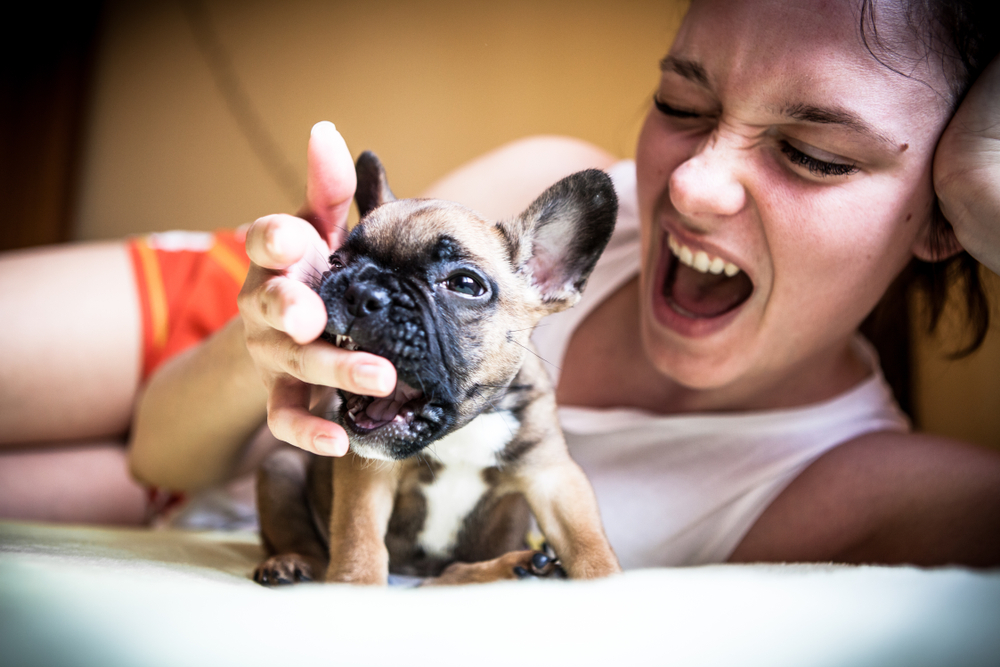
Many pet owners chalk up nipping and biting as normal puppy behavior, but this action should be nipped in the bud at an early age. Puppies who are left longer with their littermates—ideally for 10 weeks or more—generally display more bite inhibition than those removed from their litter as early as 6 to 8 weeks of age. During play with their littermates and mother, puppies learn acceptable biting behavior, and what will not be tolerated. This teaches them to mouth gently during play, or to gnaw only on toys, not other puppies’ tails and ears. Once you bring your new puppy home, you take their littermates’ place in teaching them appropriate play behavior.
If your puppy is prone to nipping and biting while playing, immediately exclaim, “Ouch!” and stop playing. A high-pitched yelp will sound similar to your puppy’s littermates, and removing attention will further reinforce that biting is unacceptable. Screaming, flailing, and shoving your puppy away will only encourage them to continue “playing,” so stick to a short yelp, and remove your hand, walk away, or discontinue the game. Once your puppy settles down, you can resume petting or playing, but stop immediately should they start nipping again. With time, your puppy will make the connection that biting equals no attention.
Puppies take a substantial amount of time, training, and care to grow into happy, healthy dogs. Once you welcome your new puppy home, let our Palm City Animal Medical Center team welcome them to our family. Contact us to schedule your new puppy’s first wellness appointment.

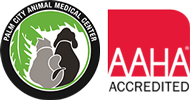
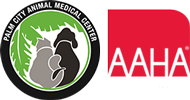
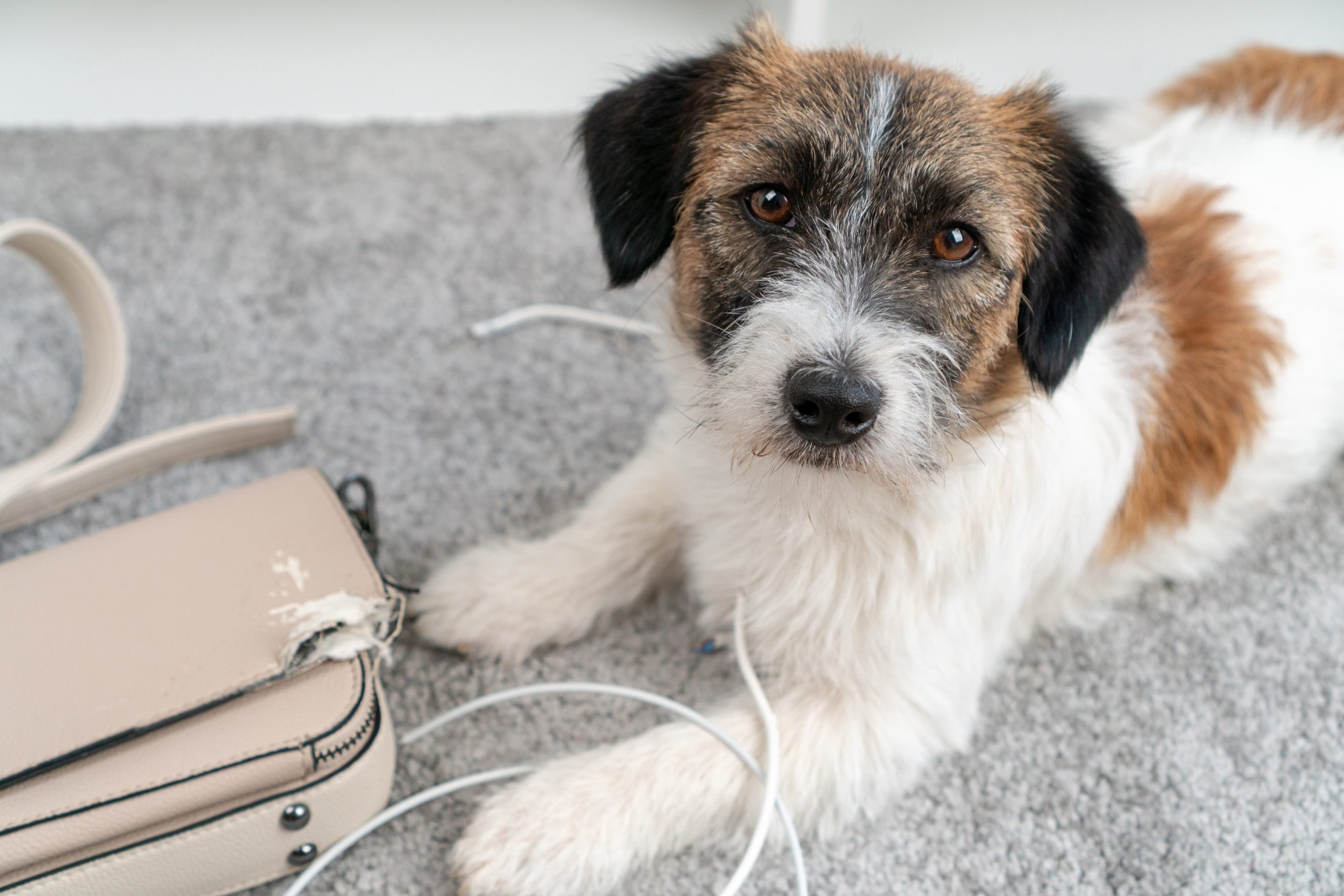
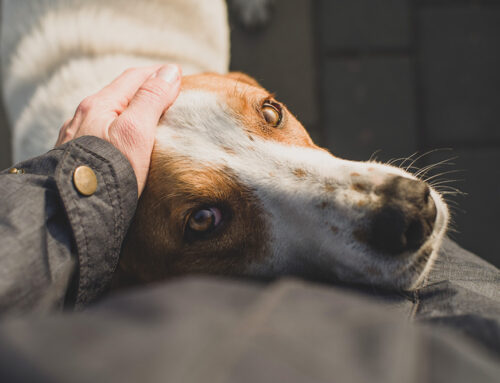
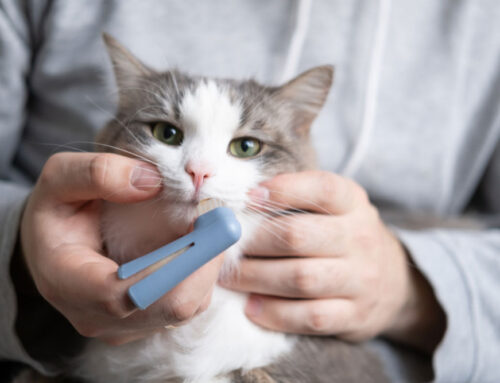


Leave A Comment